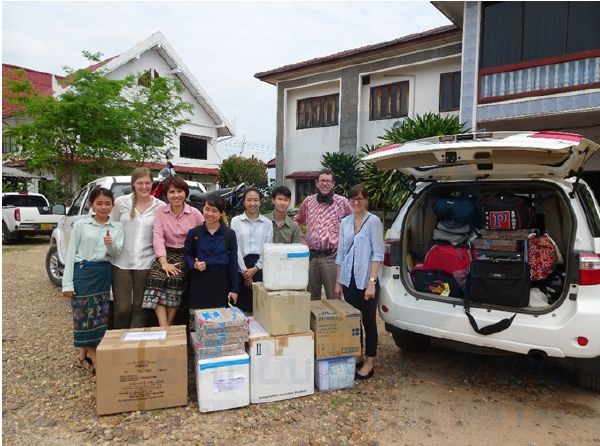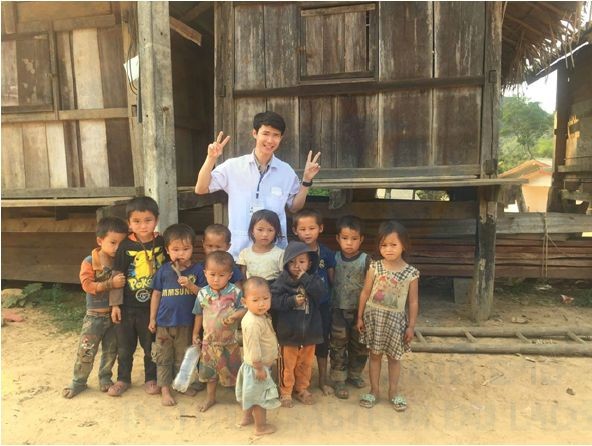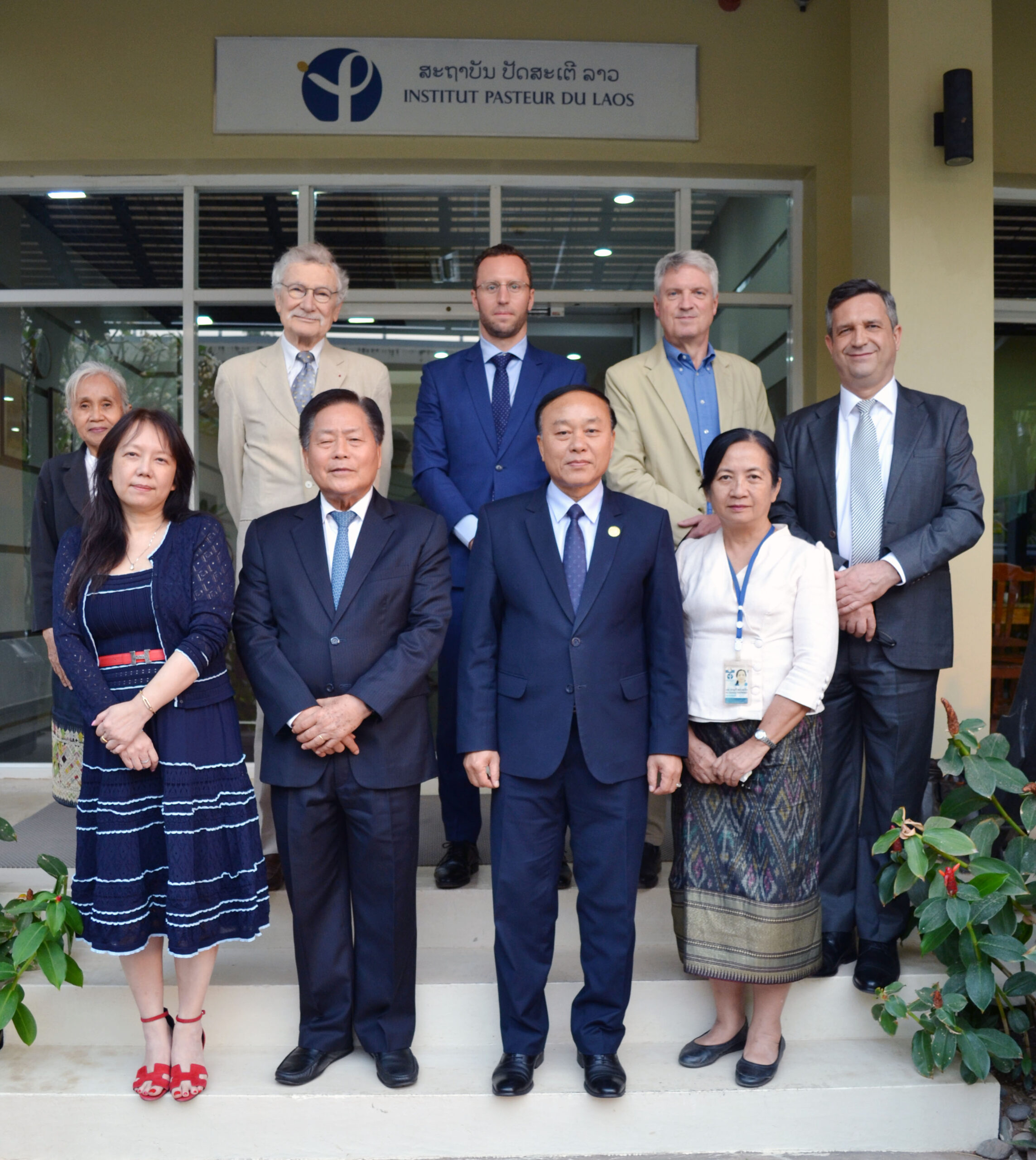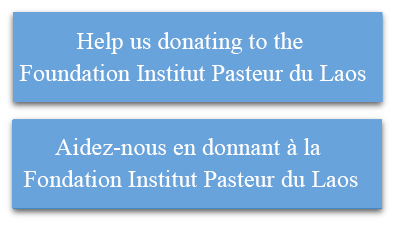Immunogenicity of pentavalent vaccine in Lao PDR

Lao Lux staff and IFMT students transporting equipment and reagents for vaccine immunogenicity project, Bolhikhamxay Province.
Project coordinator:
Claude P. Muller, Antony P. Black
LLL and LIH staff: Kinnaly Xaydalasouk, Phonethipsavanh Nouanthong, Lisa Hefele
Collaborators in Lao PDR: Lux Dev, Institut de la Francophonie pour la Médecine Tropicale, Children Hospital, Vientiane
Introduction
We have recently published a study showing alarmingly low immune responses to tetanus, hepatitis B and diphtheria components of the childhood pentavalent vaccine (DTP-HepB-Hib) in fully vaccinated children from between 9 and 50 months recruited from Khammouane, Boulhikhamxay and Vientiane provinces within Lao PDR (Evdokimov et al. 2017). Protective levels of antibodies against tetanus, diphtheria and hepatitis B virus were found in only 85%, 56% and 38% of children. The findings suggested that documented vaccinated Lao children had poor responses to the vaccine. However, we were unable to determine the reasons for this low response. Possibilities include poor vaccine quality (insufficient cold-chain/storage), compromised child immunity (due to parasite infestations, malnutrition) or inaccurate vaccination records.
In order to investigate the reasons for low immune response, a large-scale study was initiated in collaboration with Lux Dev and the Institut de la Francophonie pour la Medicine Tropicale (IFMT).
One main hypothesis was that the vaccine suffers from poor storage and transport (e.g. freezing) that may damage the potency. Therefore, we selected children who received their vaccine at different locations – some near the top of the cold chain in a central hospital in Vientiane, and others from provincial, district and health centres, where the vaccine has had to travel further, and storage conditions are more challenging.
So far, more than 800 fully vaccinated children have been recruited from central, provincial and district hospitals. Initial analysis shows a marked increase in immune response compare to our previously published study. These preliminary data suggest that there has been an improvement in vaccine immunogenicity within the last few years, although it remains poor. Experiments and analyses are ongoing in order to determine the reason for low immunogenicity.

IFMT student and village children, Bolhikhamxay Province.






